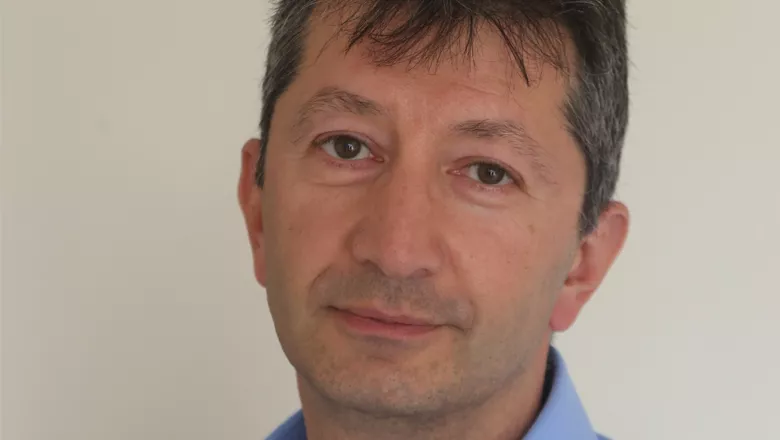I am honoured to work with scientists, clinicians, and people living with or affected by ALS to help define the highest priorities for ALS research. It is only through collaborations and partnerships like this that we can make progress towards a cure.”
Professor Ammar Al-Chalabi
18 August 2022
Professor Ammar Al-Chalabi Appointed as Co-Chair of NINDS ALS Strategic Plan Working Group
The U.S. National Institute of Neurological Disorders and Stroke (NINDS) has formed a strategic planning process to identify the highest priorities for Amyotrophic Lateral Sclerosis (ALS) research.

Ammar Al-Chalabi, Professor of Neurology and Complex Disease Genetics at the Institute of Psychiatry, Psychology & Neuroscience, was selected to co-chair the Basic Science Working Group as part of the NINDS ALS Strategic Planning Team. NINDS, a part of the U.S. National Institutes of Health (NIH), is currently developing a new ALS Strategic Plan to steer the direction of ALS research in the United States.
Amyotrophic Lateral Sclerosis (ALS, also called motor neuron disease or MND) is a fatal disease affecting the nerve cells in the brain and spinal cord, causing progressive weakness of the muscles. The average age of onset is 60 years and death usually occurs three years after the first symptoms due to respiratory failure. Although there are some treatments to slow disease progression by a few months, there is no cure available to date.
NINDS issued a Request for Information (RFI) to all members of the public between January and February 2022. The responses came from individuals living with ALS, caregivers, researchers, advocates and the broader ALS community and were shared with the ALS Strategic Planning Team. The responses highlighted the urgent need for access to diagnosis and therapies. Complete responses are currently being reviewed by the ALS Strategic Planning Working Groups, which are composed of scientists, clinicians, advocates and people living with ALS.
The NINDS ALS Strategic Plan consists of five Working Groups:
- Basic Science (Accelerating Research on the Biology Behind ALS)
- Translational (Translating Fundamental Research into Potential ALS Therapies)
- Clinical (Optimizing ALS Clinical Research)
- Quality of Life (Improving the Quality of Life for Persons Living with ALS)
- Partnerships and Collaborations (Identifying Opportunities)
In his role as co-chair of the Basic Science Working Group, Professor Al-Chalabi will play a key role in identifying the highest priorities for research that will lead to the discovery of effective interventions for the diagnosis, treatment, management, prevention, or cure of ALS.
The Working Groups will meet on 26 and 27 October 2022 to present their findings and hear input from the public on their proposed priorities. After the meeting, the working groups will revise the research priorities for further public consultation before presenting them to the National Advisory Neurological Disorders and Stroke Council.
Professor Al-Chalabi is a professor at King’s IoPPN and a consultant neurologist at King’s College Hospital. He is Head of the Department of Basic and Clinical Neuroscience at the IoPPN. His research focuses on amyotrophic lateral sclerosis. His research team focuses on finding the causes of ALS and the factors influencing the way ALS manifests and progresses.
His work has been recognised by multiple international awards such as the ALS MND Alliance Forbes-Norris Award, given annually to a neurologist who has shown exceptional care and compassion in the study and management of ALS and the American Academy of Neurology Sheila Essey Award, which recognizes seminal research breakthroughs in the search for the cause, prevention of and cure for ALS. He is also an initiator of Project MinE, an international project aiming to sequence 15000 people with ALS worldwide.
For more information, please contact Annora Thoeng (School of Neuroscience Senior Communications and Engagement Officer)

